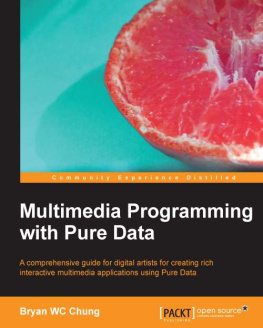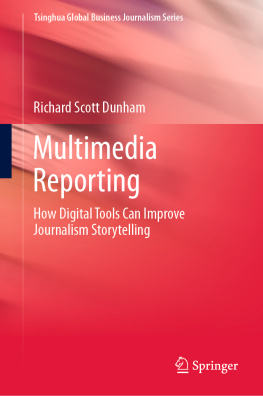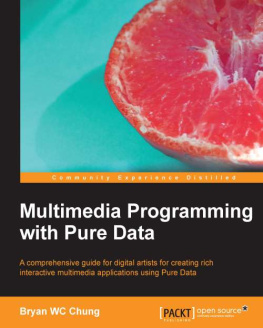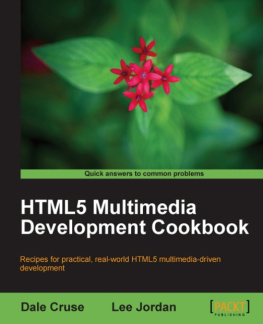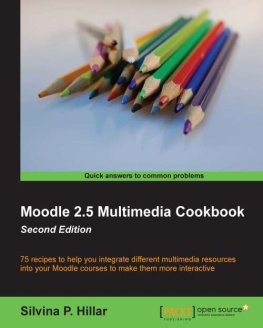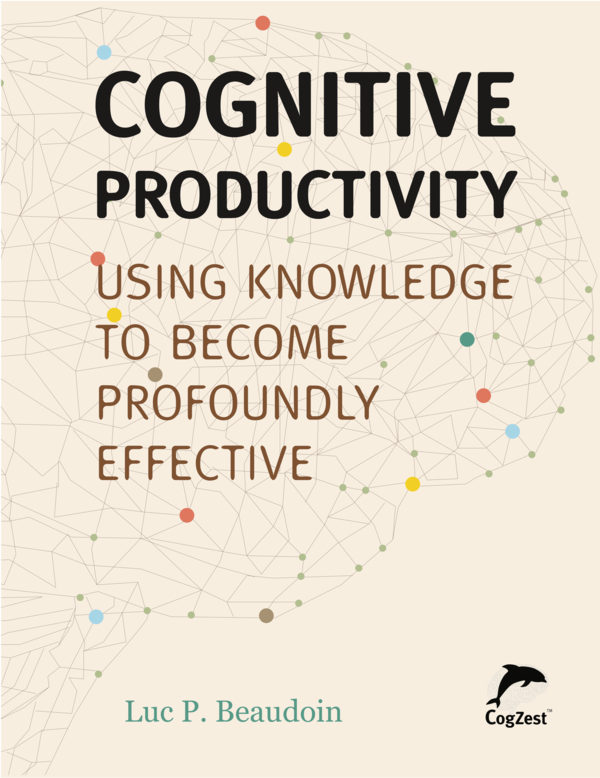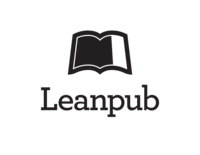Luc P. Beaudoin
This is a Leanpub book. Leanpub empowers authors and publishers with the Lean Publishing process. Lean Publishing is the act of publishing an in-progress ebook using lightweight tools and many iterations to get reader feedback, pivot until you have the right book and build traction once you do.
2013 - 2016 Luc P. Beaudoin
In memory of Pierre-Elliot Trudeau, Sir Winston Churchill, Jacques Brel, and their cognitive zest
List of Figures
Figure 1.1 Processing knowledge for effectiveness
Figure 2.1 Uses of Information
Figure 5.1 H-CogAff (Human Mental Architecture)
Figure 5.2 Internal Motivators
Figure 5.3 Slomans depiction of Jerry Fodors modular architecture as sunflower-like
Figure 6.1 Developing Motivators
Figure 6.2 Microdevelopment (Beyond Modularity)
Figure 9.1 Levels of Information Processing
Figure 9.2 The Information to Effectiveness Funnel
Figure 9.3 Shallow vs. Deep Processing
Figure 9.4 A Focal Resource and its Meta-Information
Figure 9.5 Sample Areas of Responsibility
Figure 9.6 Example Development Activities as OmniFocus Contexts
Figure 9.7 R&D activities (surf, process, develop) as OmniFocus contexts
Figure 9.8 OmniFocus Task Capture
Figure 12.1 Mavericks Tag Input Window
Figure 12.2 OmniFocus Project View for this Book
Figure 12.3 A Portion of a Meta-doc
Figure 12.4 An Example Empty Meta-doc
Figure 12.5 A Template for Understanding Concepts
Figure 12.6 Schematic of Notational Velocity User Interface
Figure 12.7 Example Transcription in Scrivener
Figure 14.1 Cue Overload
Figure 14.2 RD Cue for Avoiding Harsh-Startups
Copyright (2013-2016). Luc P. Beaudoin
Cognitive Productivity: Using Knowledge to Become Profoundly EffectivePublished by CogZest of British Columbia.
Prior to July 10, 2014, this book was published as Cognitive Productivity: The Art and Science of Using Knowledge to Become Profoundly Effective.
Release notes for this book (errata of previous revisions) are published on the CogZest web site. If you discover an error in this book please email cz-info@cogzest.com about it.
Trademark Notice: Product or corporate names may be trademarks or registered trademarks, and are used only for identification and explanation without intent to infringe. Mac OS, iPod, iPhone, iPad, and Applescript, iBooks are registered trademarks of Apple Inc. registered in the U.S. and other countries. App Store is a service mark of Apple Inc. GTD and Getting Things Done are registered trademarks of David Allen & Co. OmniFocus, OmniOutliner, and OmniGraffle are trademarks of OmniGroup. RIM and Blackberry are trademarks of Blackberry Limited. There are other marks not listed in this paragraph but mentioned below that are trademarks of their respective owners.
Examples Given that people learn better with examples than without, I use many different types of examples in this book. For example, I use fictional characters in this book to illustrate the cognitive productivity framework. However, any resemblance between these fictional characters and real persons is strictly coincidental. I also refer to a few, diverse well-known, high-caliber concepts and books to illustrate my framework. My descriptions of example theories are terse; however, I encourage readers to consult the original works in order to benefit from them. Rather than merely refer to product categories, I mention specific products. For example, when talking about book holders, I refer to Book Gem.
Disclaimers. This book is not meant to provide legal, medical, psychological or any other type of advice in regulated domains.
The Acknowledgments below constitute an extension to the copyright page.
Preface
Weve all had this experience: Weve read a factual or practical book that had the potential to make us more effective in some specific respects. Several months later, however, we can hardly remember the content. Worse, years go by and we have yet to apply the gems of knowledge it contains. There is no simple solution to this problem; but there are things we can do to address it.
I have written this book primarily for self-directed learners and those who study them. My objective is to help effective people systematically use knowledge and technology to become increasingly effective. This is the problem of knowledge potentiation: How to release the potential of knowledge in ourselves. This book addresses this problem by leveraging the most progressive attempt humanity has made to understand the human mind: cognitive science, broadly speaking. Broad cognitive science is not restricted to the narrow, classical concept of dry information processing. It also seeks to explain affective information processing: motivation, emotions, moods and attitudes.
To prepare you for this book, let me briefly recapitulate the journey of which it is a part. While taking a high school course on history, I discovered a simple yet potent algorithm to master a body of knowledge:
- Review the materials to ensure full comprehension.
- Formulate a collection of questions that can only be adequately answered by someone who sufficiently understands the matter.
- Practice answering these questions, at spaced intervals until and beyond the point of manifest mastery.
Of course, the system worked like a charm. It helped me gain a deep understanding of all kinds of academic problem spaces. I aced papers and exams. It helped me to earn more scholarships and Ph.D. placement offers than I could accept. I got to study in one of the finest cognitive science programs with my top choice of a Ph.D. thesis supervisor, Prof. Aaron Sloman.
Cognitive psychology had decades earlier formally discovered some key data and principles that lend credence to my algorithm. Some of the keywords to that literature are test-enhanced learning, test-effect, distributed recall practice, self-regulated learning and deliberate practice.
I contributed to the Cognition and Affect Project at the universities of Sussex and Birmingham. We developed a deep, new theory of how minds process goals, motives and emotional states. This has informed my understanding of all aspects of psychology and this book.
Like that of many other knowledge workers, my career has required that I develop expertise in a wide variety of areas. I have been an Assistant Professor of Military Psychology and Leadership, a semiconductor technical writer (Tundra Semiconductor), an element-management software developer and team lead (Abatis Systems),, which provides publications and services, and CogSci Apps Corp., which develops software. Each one of my roles has called upon me to rapidly transform myself with knowledge and technology. In each role, I tried to understand how what I knew could help me to learn more effectively.




